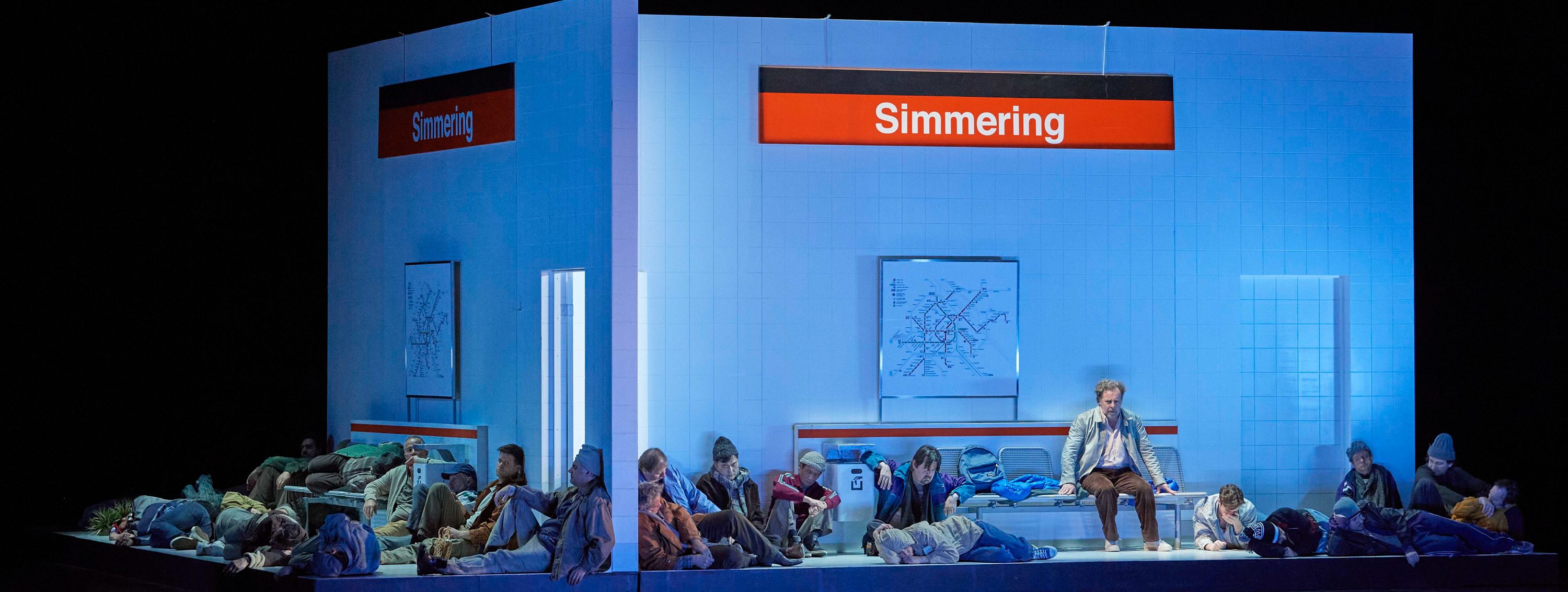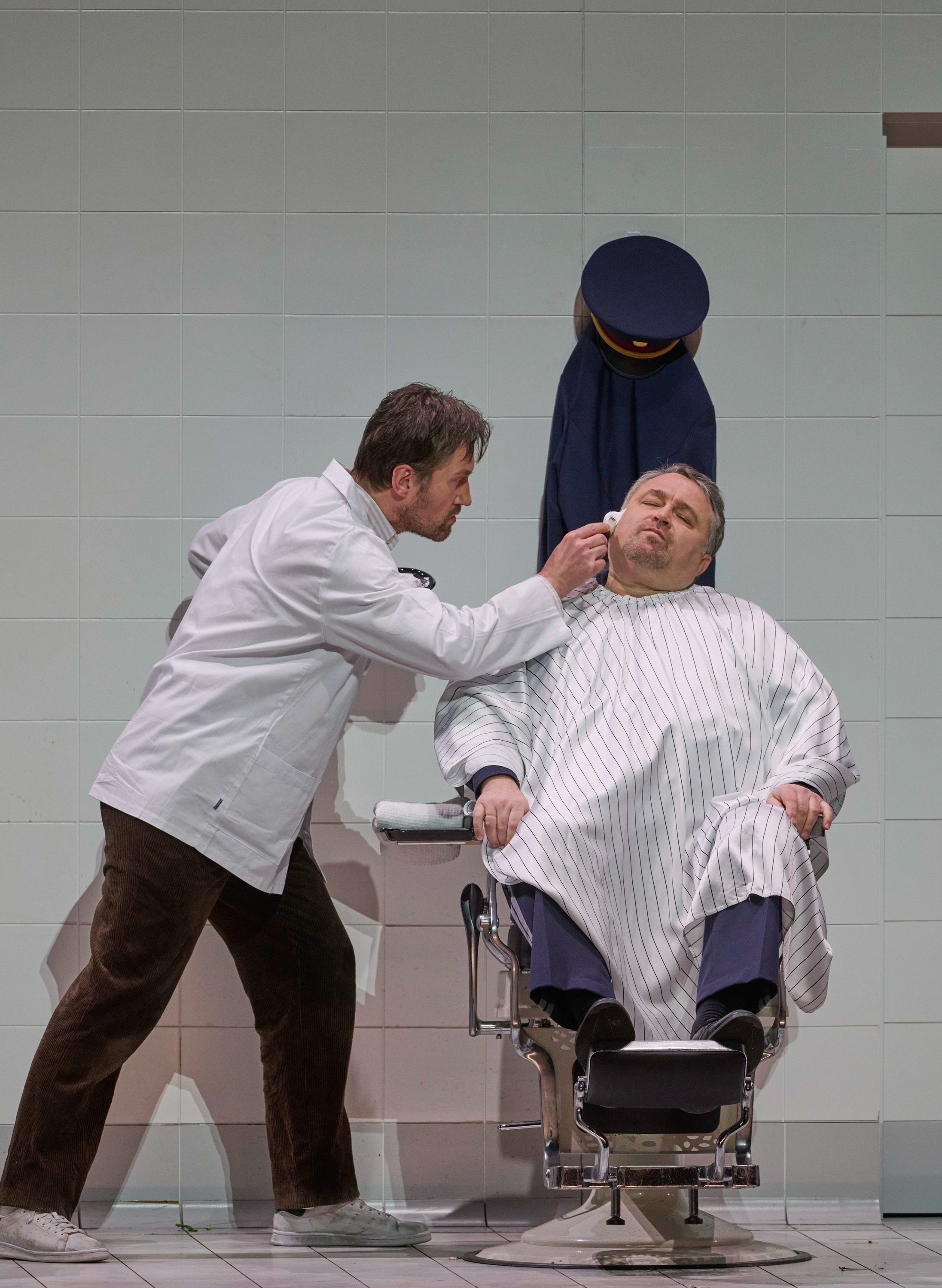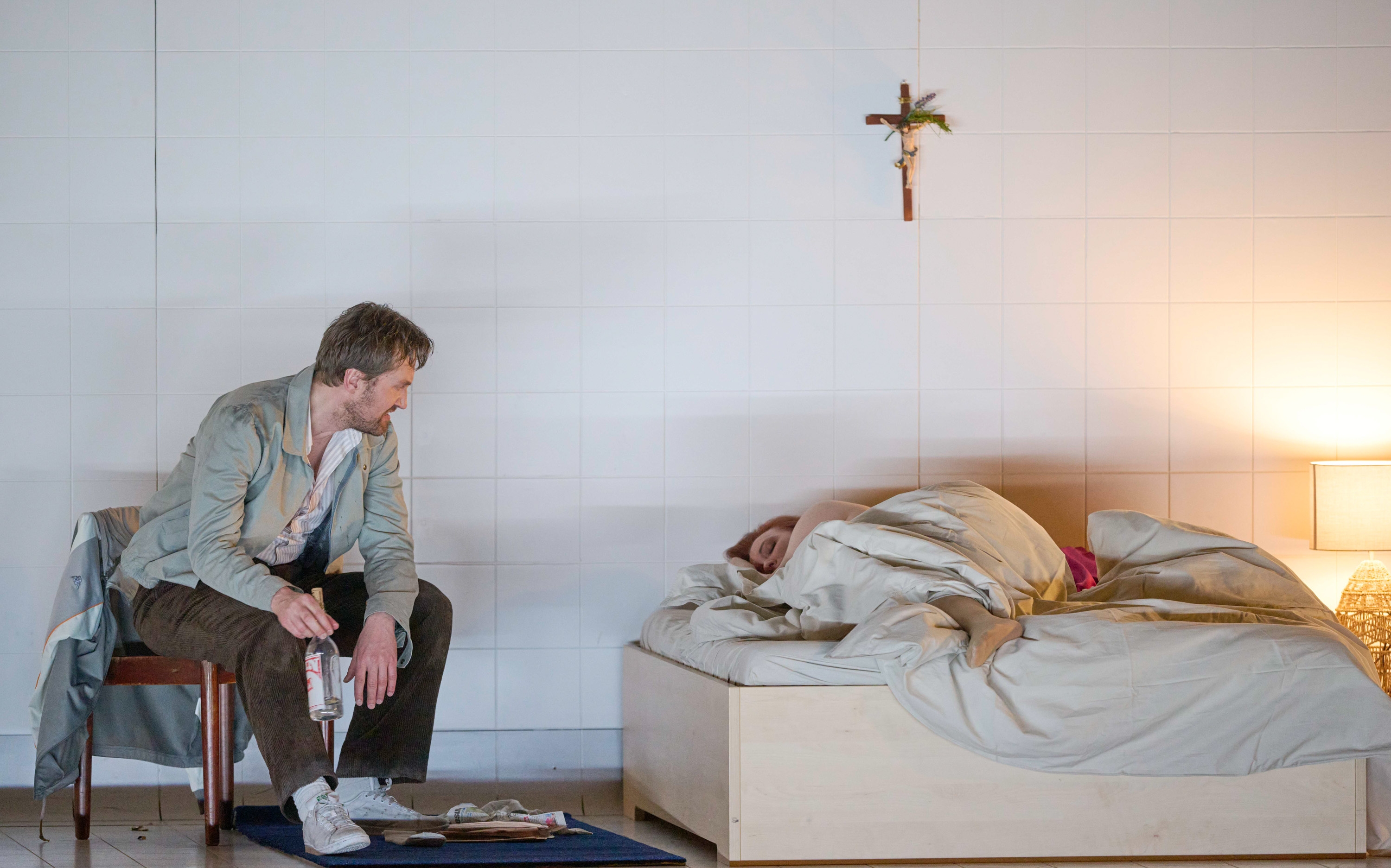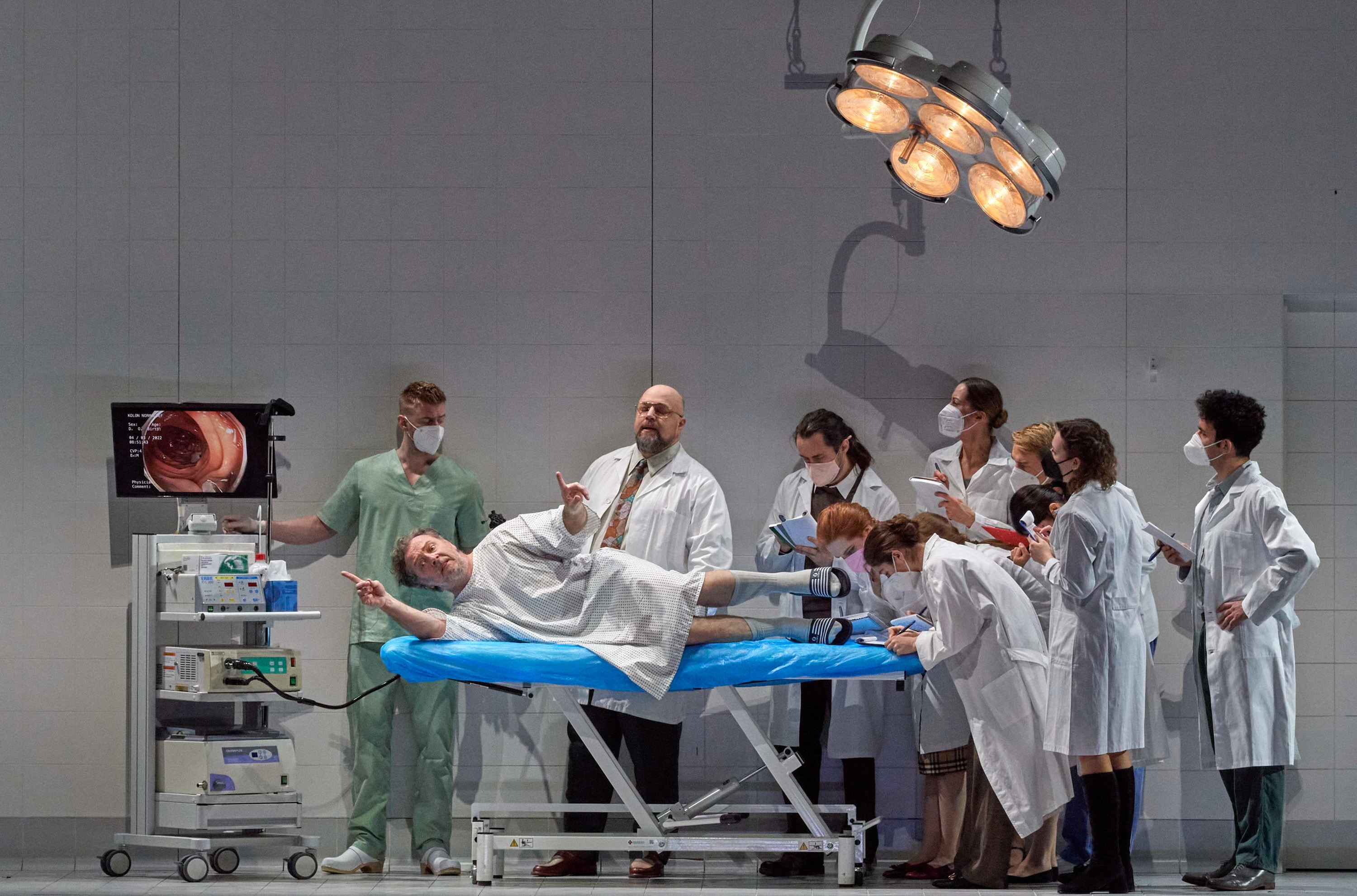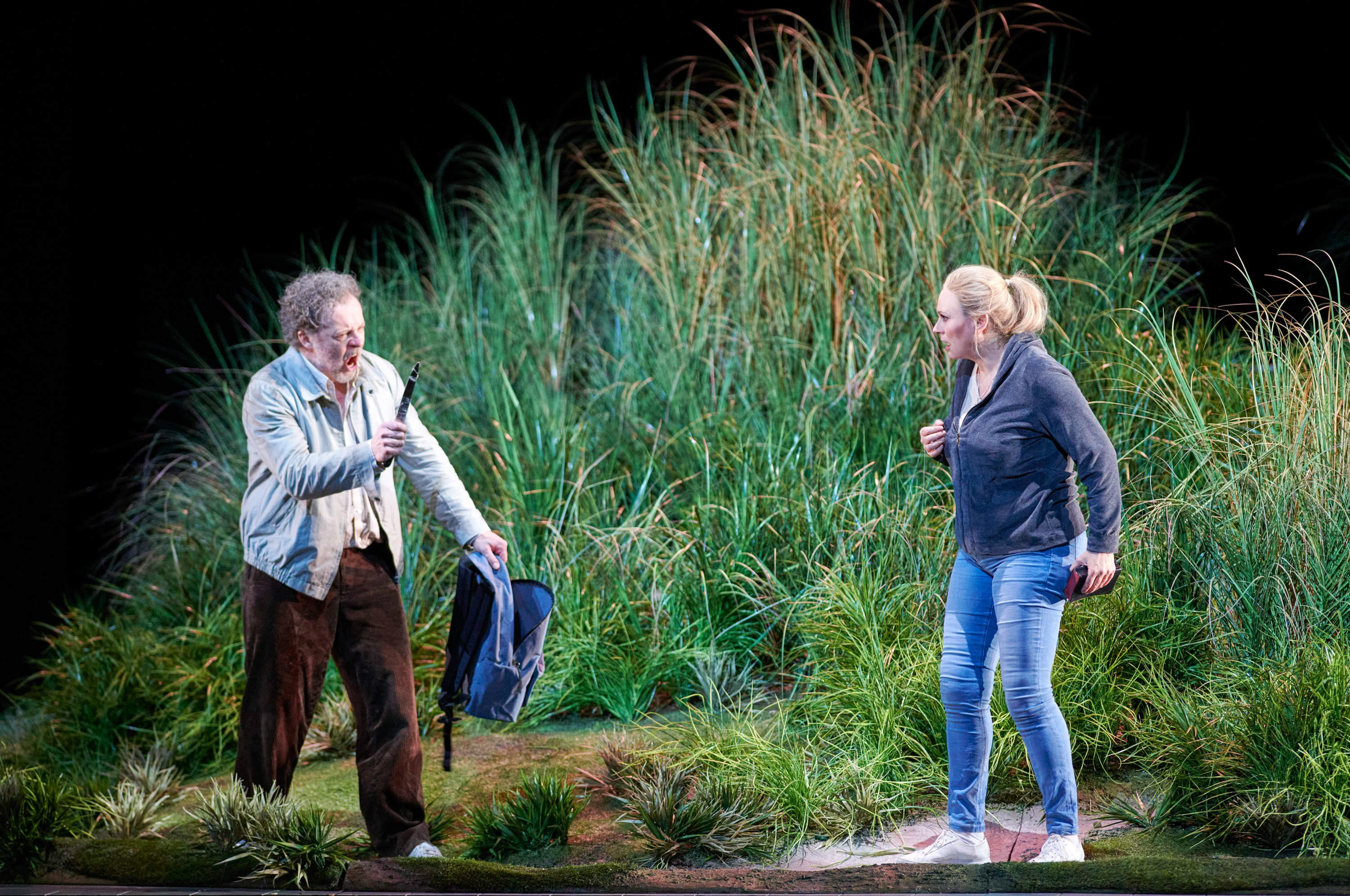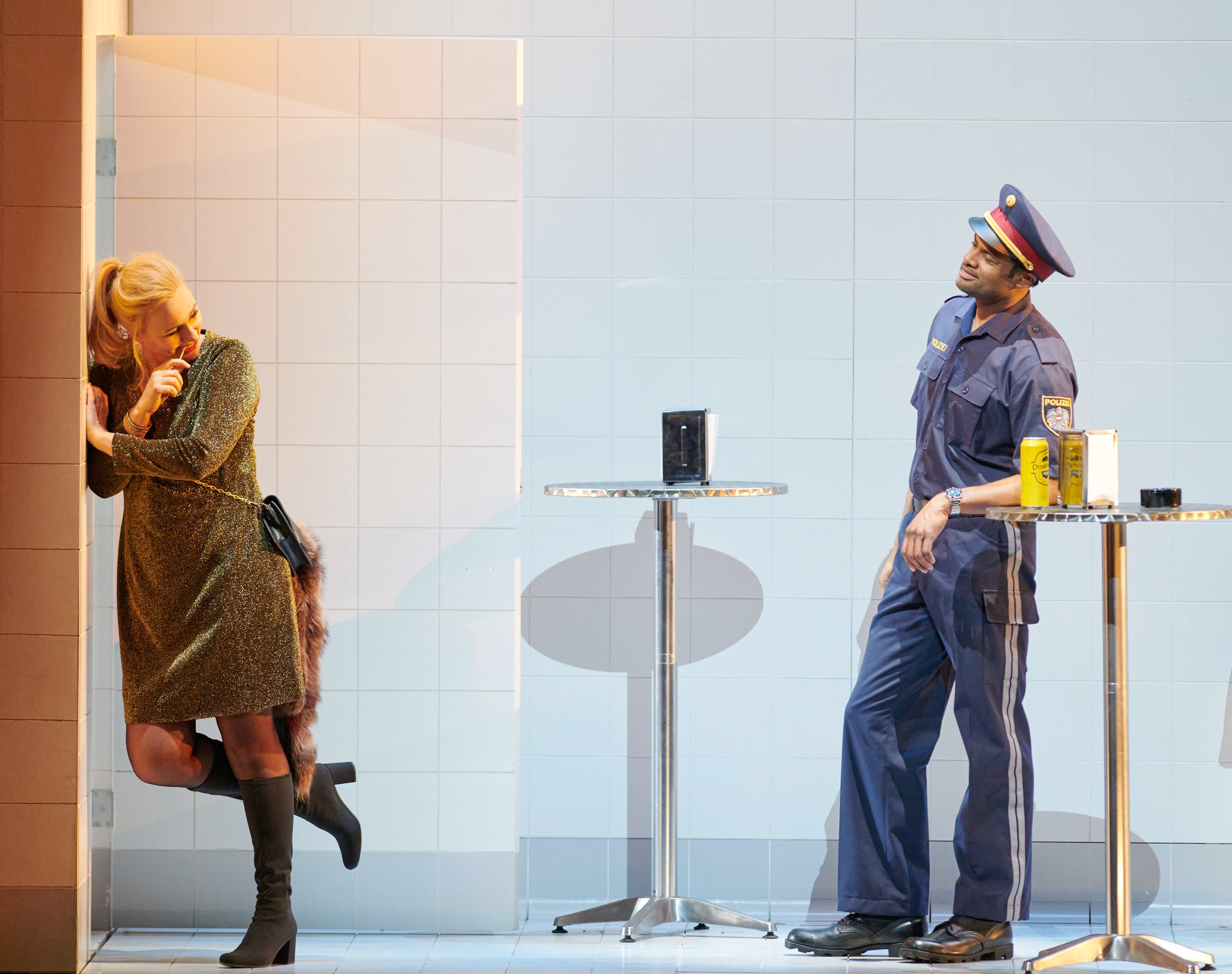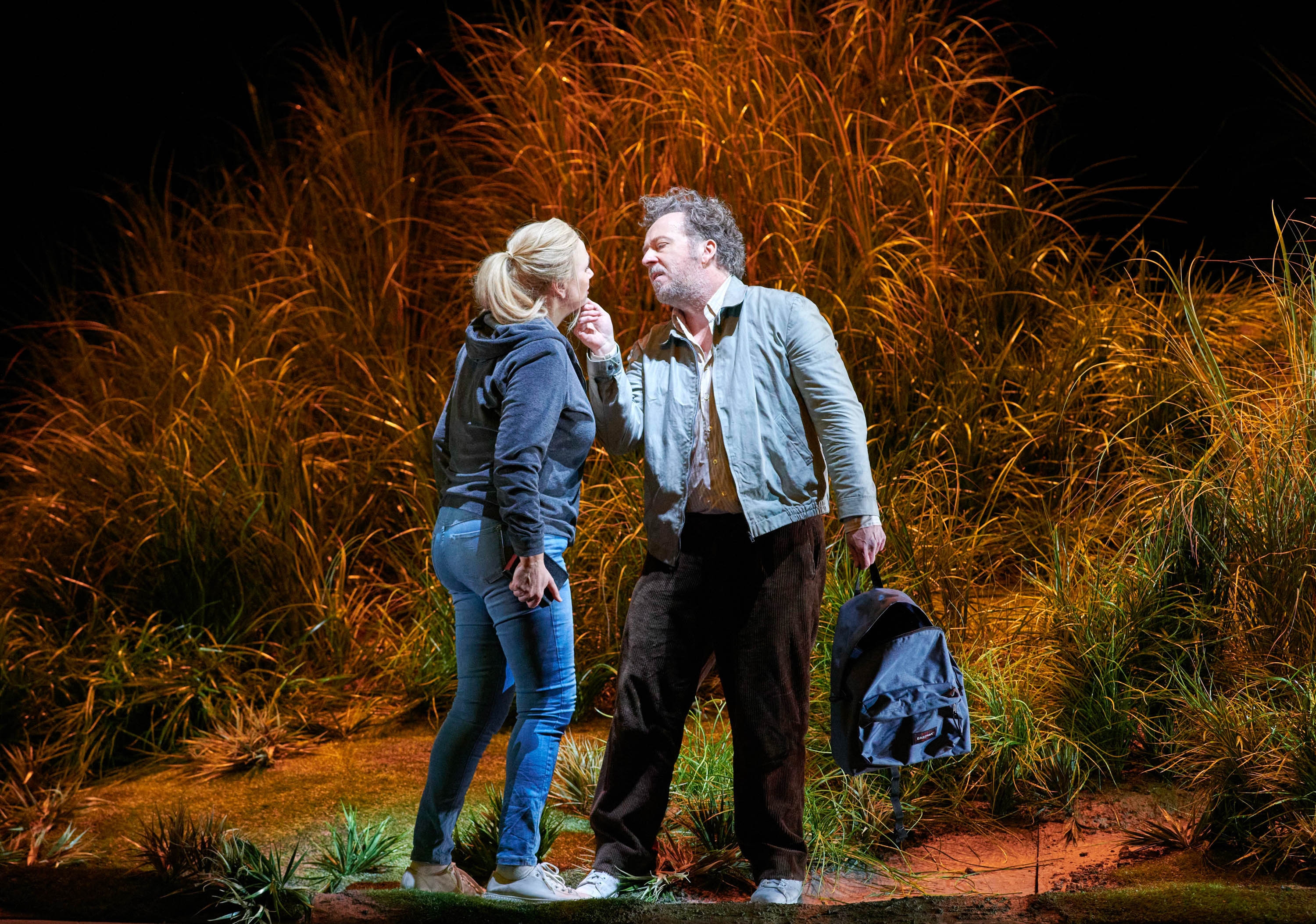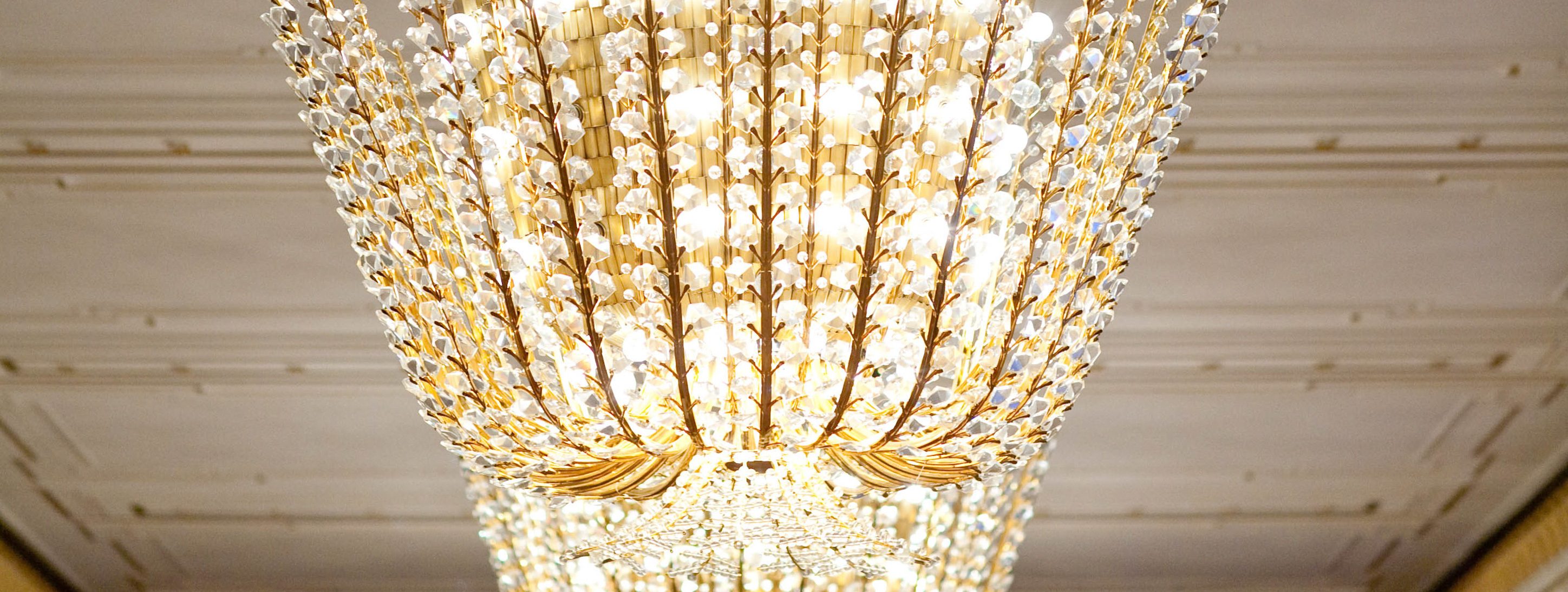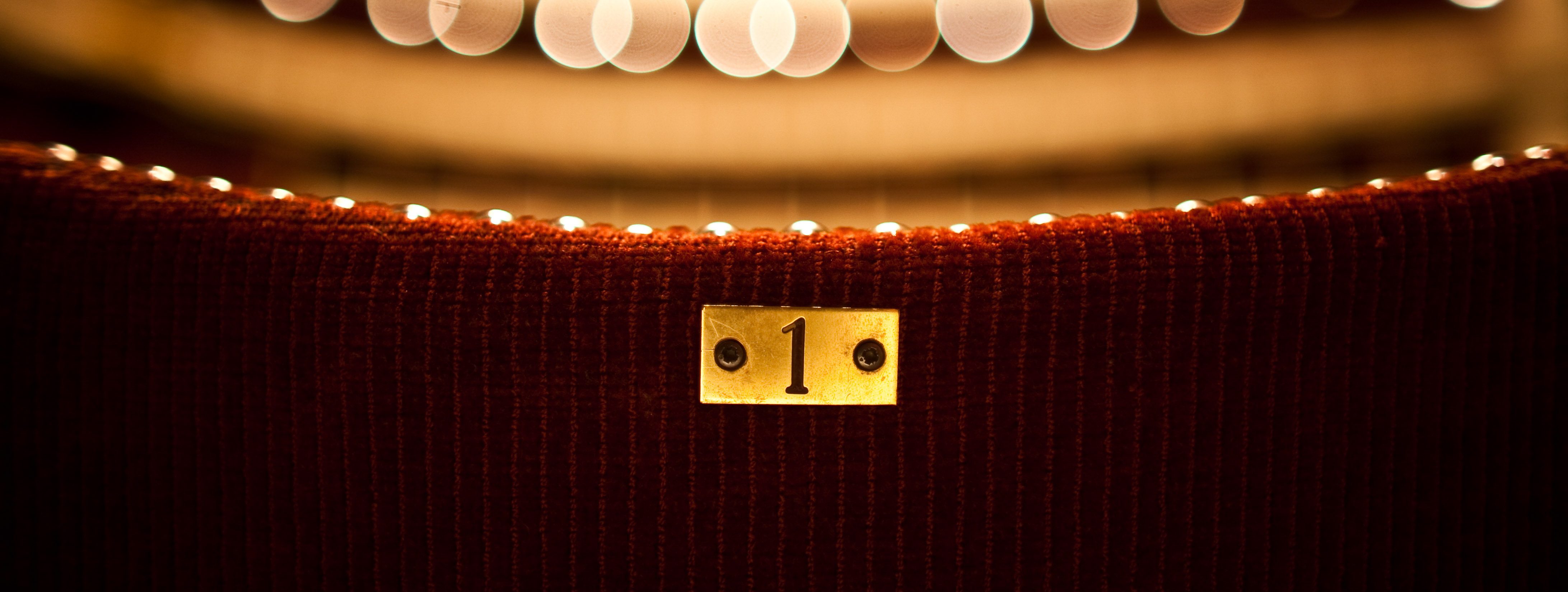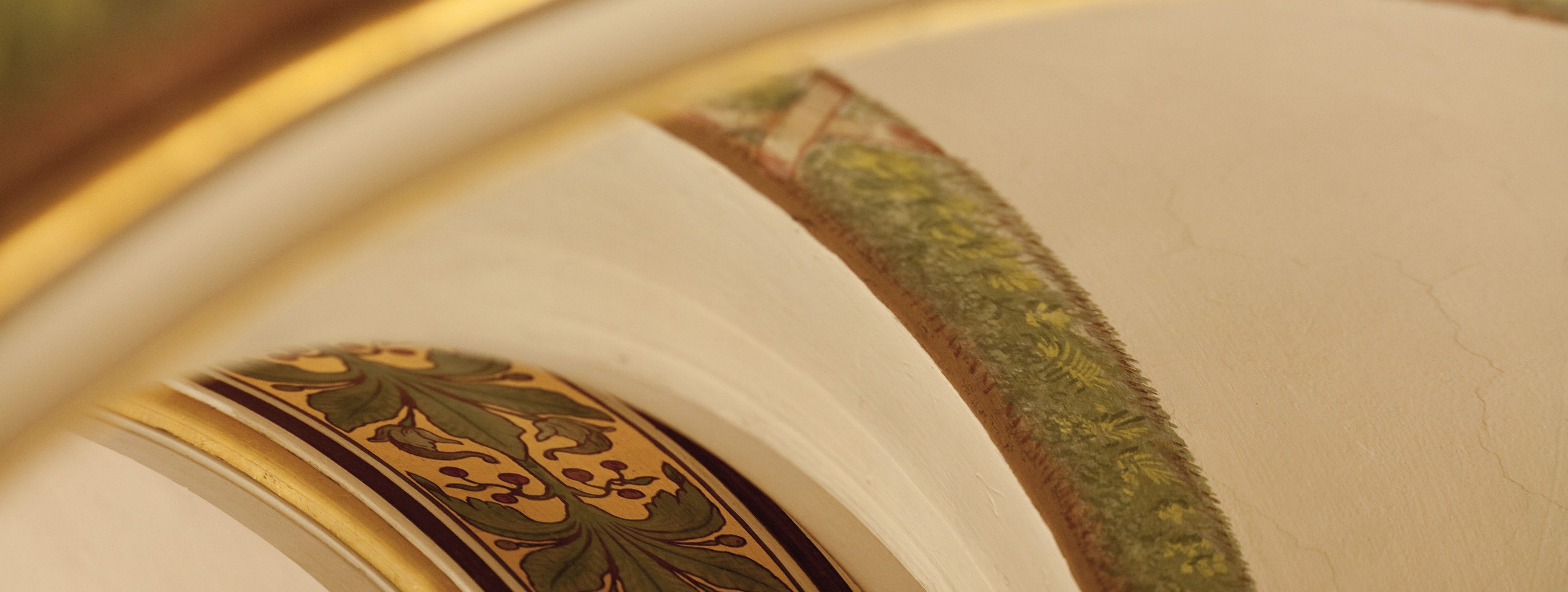About the Production
Alban Berg's Wozzeck tells the story of a tormented creature who, beset by visions and fears, ridiculed and tormented by society, is driven out of existence - until the final catastrophe occurs and the victim also becomes a perpetrator.
Wozzeck
Storyline
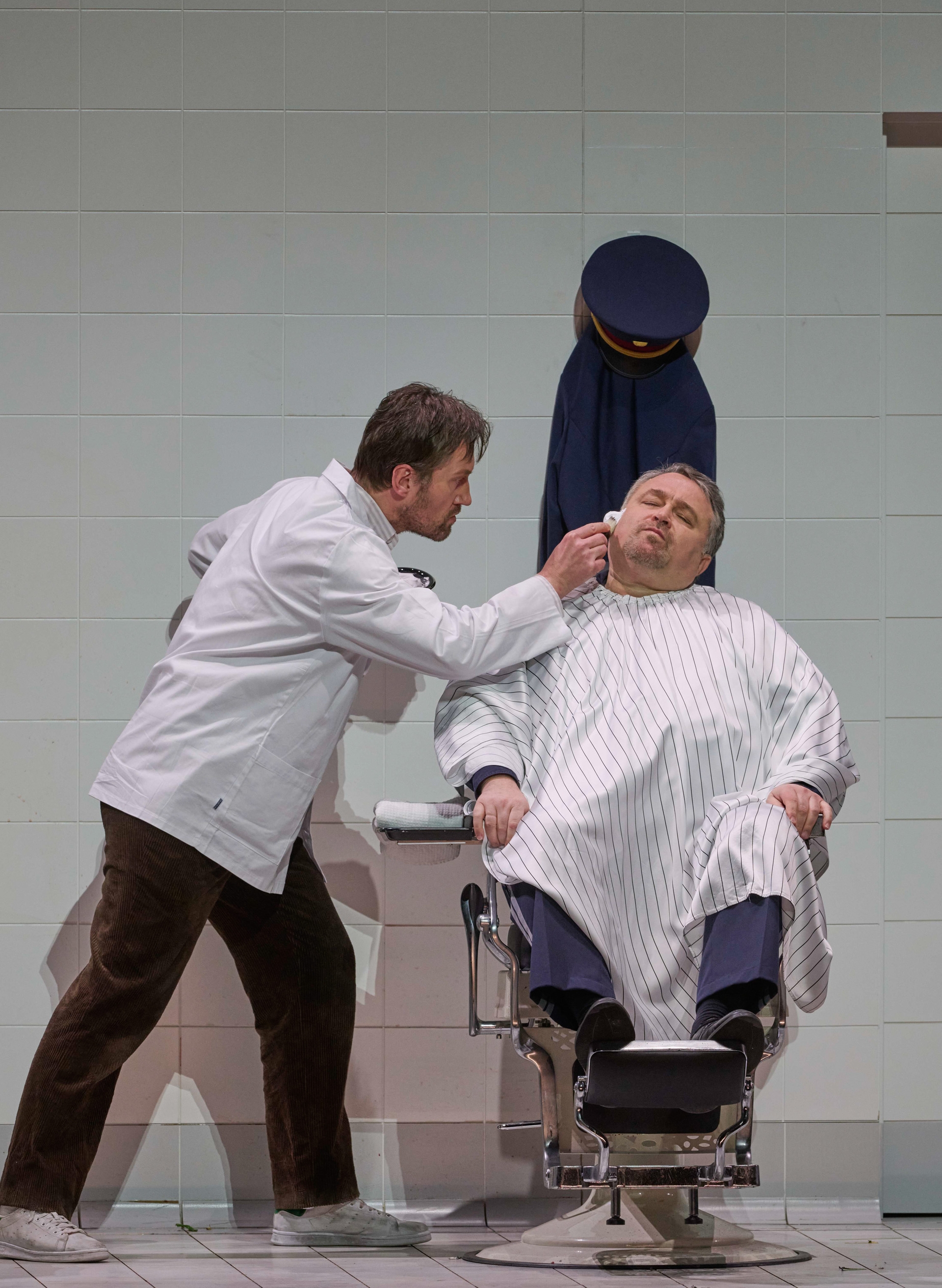
In order to provide sufficient financial support for his girlfriend Marie and her little boy, Wozzeck pursues several different sidelines: for example, he regularly shaves the captain, cuts sticks or makes himself available to the doctor for questionable medical experiments - such as a diet of beans and pork. Restless and driven by tormenting delusions, he rushes from one activity to the next, constantly exposed to the mockery and sadism of the captain and doctor. The only support he has is his relationship with Marie. But she is attracted to the attractive drum major, with whom she eventually enters into a sexual relationship.
When Wozzeck discovers two new earrings on her, his first suspicions are aroused. But the doctor's and captain's clearly malicious insinuations also make it clear to him that he has been betrayed by Marie. When he confronts her, Marie brusquely rejects Wozzeck.
When he also sees her dancing in public with the drum major and the latter even raves to him about her physical advantages a little later, Wozzeck decides to murder Marie.
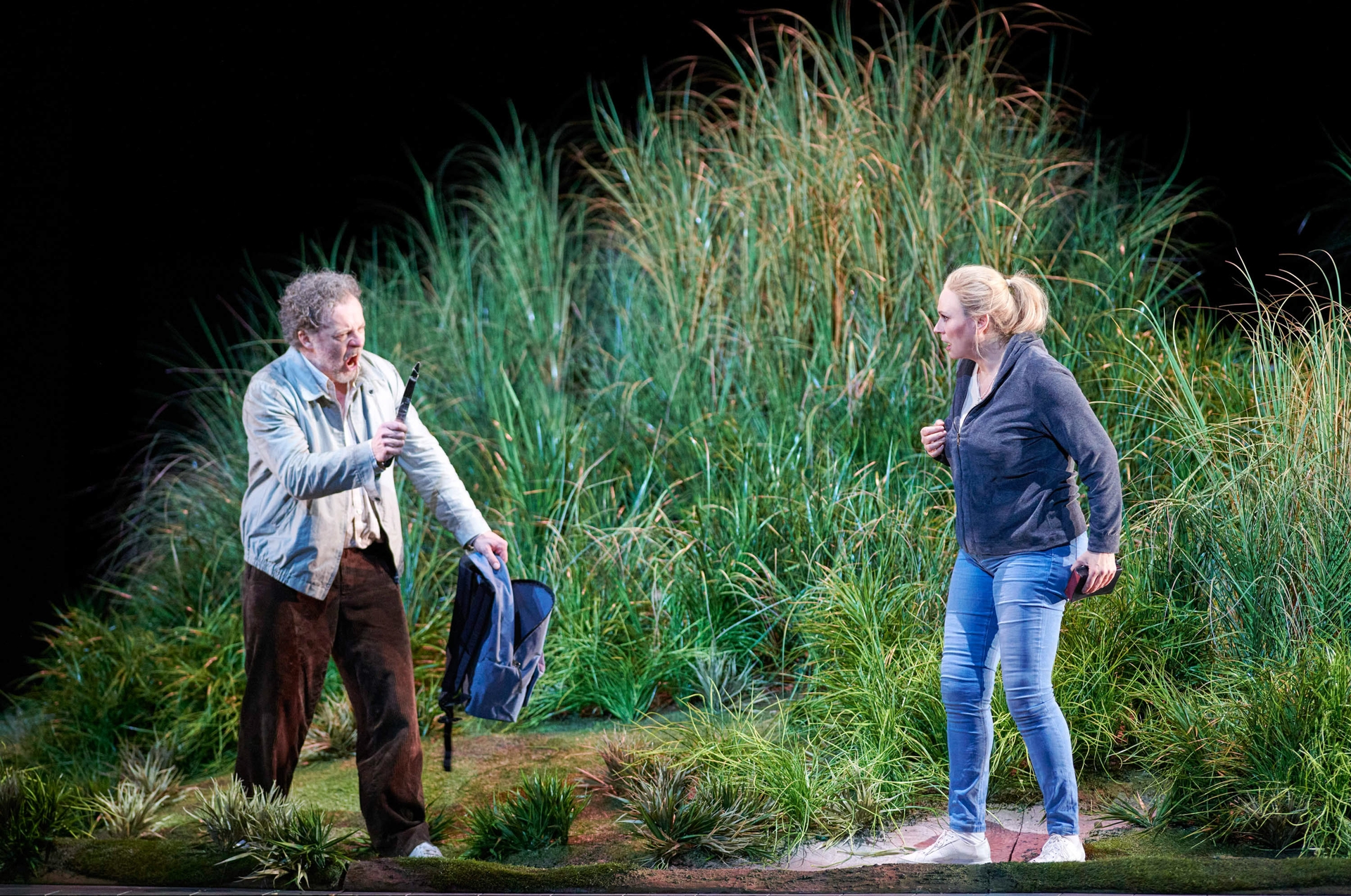
At his next encounter with Marie, outside in nature, he carries out his plan and kills Marie with a knife. Shortly after Margret and others discover blood on Wozzeck, he returns to the scene of the crime to hide the discarded knife even better, plunging deeper and deeper into the water and drowning. The boy Mariens, teased by other children, is left behind as an orphan: still too small to understand what has happened.
Director Simon Stone is keen to place the story to be told in a world that is present and familiar to the respective audience. His Wozzeck production is therefore not only set in the present day, but also in Vienna - in a Viennese subway station or in front of an AMS service point, for example. On the one hand, he depicts an external view of the life of the underdog Wozzeck, his relationships with other people, his surroundings, his world and, on the other, he repeatedly changes perspective - based on Berg's expressionist music - and becomes part of the title character's inner life in order to illustrate what the external circumstances do to him.
For Simon Stone, however, the fact that Wozzeck commits femicide by murdering his partner Marie, in other words becomes a perpetrator, cannot be explained by his role as a victim. For him, the only person in this work who really bears no guilt is Wozzeck and Marie's young son, who is left orphaned.
The worldwide success of Wozzeck is based not least on the expressionist emotionality of the music, which is late Romantic in its basic attitude - even though the composer had already overcome traditional tonality. Alban Berg also succeeded in anchoring something deeply Austrian in the music of Wozzeck , a musical dialect, so to speak, which is characterized by typical Austrian dance forms such as the ländler, waltz, march and polka. (Franz Welser-Möst)
in 1914, Alban Berg saw a performance of Georg Büchner's Woyzeck at the Vienna Kammerspiele and was so impressed by what he saw that he immediately thought of setting the material to music. For the libretto, which Berg wrote himself, he selected scenes from the original, rearranged and shortened them. The musical conception essentially took place at the same time. However, the First World War and other commitments prevented him from making rapid progress and so the particell was not finalized until 1921 and the score not until 1922. parts of the opera were performed in concert in Frankfurt in 1924, the actual premiere took place on December 14, 1925 at the Lindenoper in Berlin, and five years later the Vienna State Opera finally staged the Viennese premiere. The current production celebrated its premiere in 2022.
